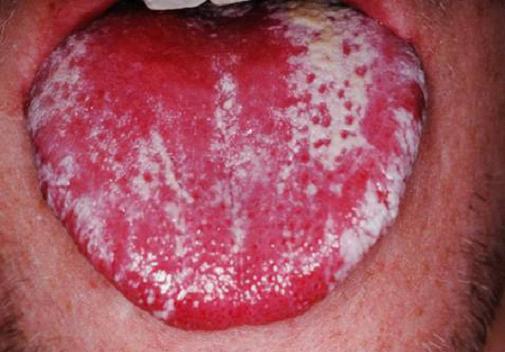Thrush Symptoms, Causes, Diagnosis and Treatment

What Is Thrush?
The condition thrush is also known as oral candidiasis. In this condition, a fungus Candida Albicans usually gathers on the mouth lining. Candida is normally present in your mouth as a normal microorganism, however occasionally it can grow and produce symptoms.
Thrush produces white creamy lesions on your inner cheeks or tongue usually. At times, thrush may affect the mouth roof, tonsils or gums, or your throat back.
Even though, oral thrush can disturb anyone, it is more likely to be seen in infants, the aged as well as in group of people suffering from the suppressed immune systems or other health disorders, or those who use several medications. The thrush is considered as a minor issue if you are fit and healthy; however, if your immune system is weak, thrush symptoms might become severe and hard to control.
What Are The Symptoms Of Thrush?
At first, even you mayn’t notice thrush symptoms. The symptoms usually depend on the basic cause and then develop suddenly or slowly, as well as they may continue for months, weeks or days. The thrush symptoms may consist of:
- White creamy lesions on your inner cheeks, tongue, mouth roof, tonsils and gums.
- Lesions rise slightly with a cheese-like cottage appearance.
- Soreness or Redness that may become severe and cause trouble while eating and swallowing.
- Bleeding from the lesions if they are scraped or rubbed.
- Redness and Cracking at your mouth corners.
- A cottony mouth feeling.
- Taste-less
What Are The Causes Of Thrush?
Generally, the immune system is responsible to keep away the harmful invading organisms, for example viruses, fungi and bacteria as well as maintain a balance among “bad” and “good” microbes that inhabit in your body normally. However, these defensive mechanisms sometimes fail, increasing the growth of candida fungi and permitting a thrush infection to dominate.
These conditions and diseases may keep you become more prone to thrush infection:
- HIV or AIDS
- Diabetes mellitus
- Cancer
- Vaginal yeast infections.
How Thrush Is Diagnosed?
Usually, Thrush can be identified simply by observing the lesions; however a small sample is inspected under a microscope to approve the diagnosis.
In youngsters or teenagers, having no known risk factors, a basic medical disorder may be the thrush cause. If your physician doubts that is the situation, she or he will most probably perform prescribed physical examination and suggest several blood tests to help access the problem source.
Thrush can also extend to the esophagus. To assist identify this condition, your physician may ask to done any or both of the below mentioned tests:
- Throat culture
- Endoscopic examination
How Is Thrush Treatment?
If the adults and children are healthy, they can be treated successfully for thrush, the symptoms may become more difficult and severe to manage in such patients having weak immune systems. Different antifungal medications are taken generally for around 14 days to treat this condition, thrush. Such medicines are also accessible in lozenges, liquids, or tablets.
By : Natural Health News




